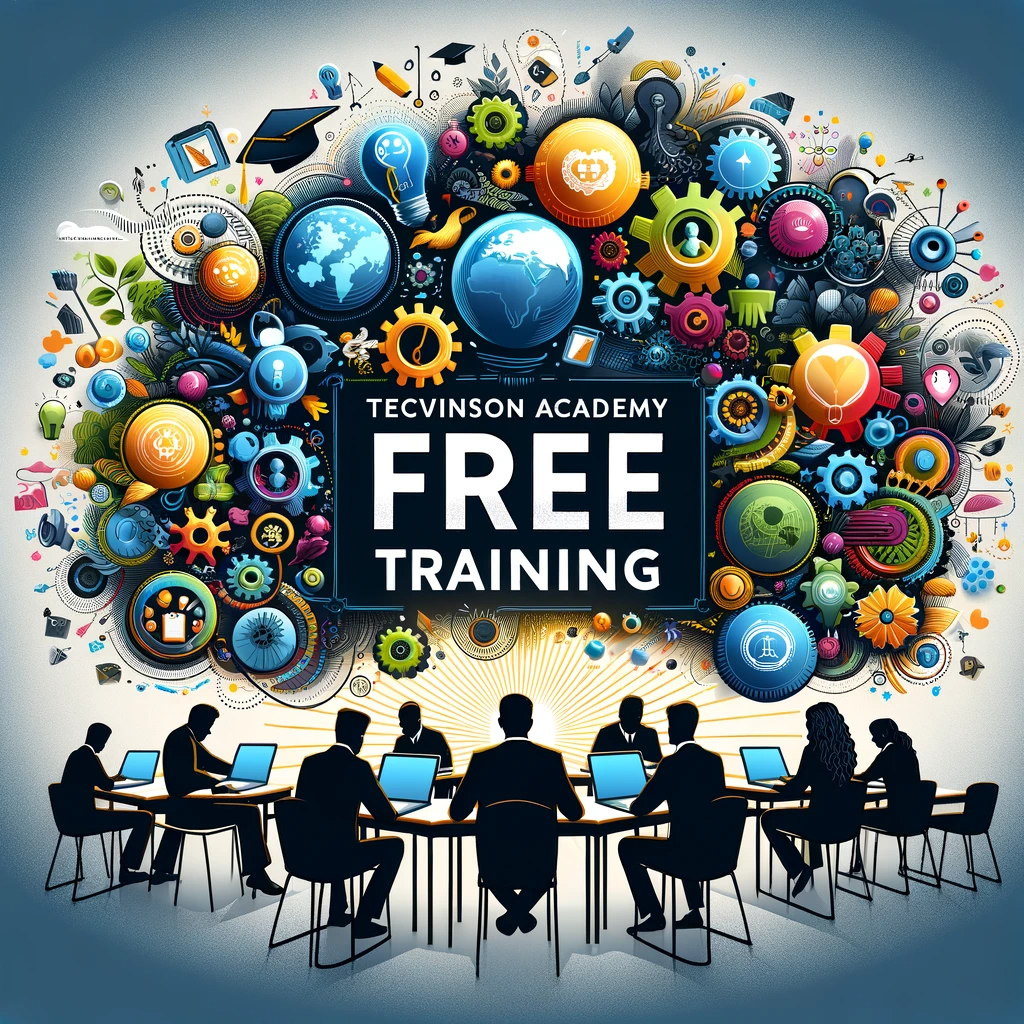The Top 10 Tech Skills for 2025

As we approach 2025, one thing that remains constant is the tech landscape’s rapid shift from one innovation to another. While this can mean a lot of things, for the intentional tech enthusiasts, it’s a chance to find in-demand and financially rewarding careers in just a few weeks! What do we need to get started?
Keeping yourself informed and making sure you have the right skills to continue advancing in your tech career. From peeking around IT corridors, here are the top 10 tech skills that will be in demand in the new year.
Artificial Intelligence
Artificial intelligence is transforming various aspects of our lives by allowing machines to interpret facts and make decisions. An example of this is how your purchasing habits are monitored, leading to tailored recommendations based on those habits. For instance, when you purchase a new phone, it is common to receive a suggestion for a phone case afterwards. Putting anxieties aside, this is simply artificial intelligence observing your behaviour and learning from your previous experiences. Essential competencies for this career path include:
• Programming Languages: Proficiency in Python, R, and Java.
• Algorithms and Frameworks: Understanding TensorFlow, Keras, and PyTorch.
• Model Development: Skills in building, training, and deploying AI models.
Machine Learning
Machine learning, a subset of AI, focuses on enabling machines to learn and improve from experience without being explicitly programmed. It has applications in various fields, such as image recognition, natural language processing, and predictive analytics. Key skills for machine learning include:
• Data Preprocessing: Skills in cleaning, transforming, and denonormalising data.
• Algorithm Selection: Understanding different machine learning algorithms and their applications.
• Model Evaluation: Proficiency in evaluating and fine-tuning machine learning models.
Cybersecurity
Cybersecurity is the essential shield that every business must don. Stopping cyberattacks and threats as soon as they emerge has become an essential business need. Information security experts protect firms from cyberattacks, data breaches, and financial losses that could damage reputation and customer trust. They protect sensitive company and consumer data with GDPR and HIPAA compliance and strong security measures with these necessary skills:
• Network Security: Knowledge of firewalls, VPNs, and intrusion detection systems.
• Ethical Hacking: Skills in penetration testing and vulnerability assessment.
• Compliance and Regulations: Understanding GDPR, CCPA, and other data protection laws.
Cloud Computing
Like a virtual office, cloud computing lets you work remotely. Data and programs are stored remotely; so, instead of running everything on your personal computer or workplace servers, all operations are conducted on secure servers maintained by companies such as AWS, Azure, or Google Cloud. You are essentially renting robust computational capabilities and storage capacity, allowing you to scale down or scale up based on your needs, and you will pay according to your usage. Primary expertise for this career path includes:
• Cloud Architecture: Designing and implementing cloud infrastructure.
• DevOps: Integrating development and operations for continuous delivery.
• Serverless Computing: Understanding functions-as-a-service (FaaS) and microservices.
Data Science
Data science involves extracting insights and knowledge from structured and unstructured data using scientific methods, algorithms, and systems. It combines elements of statistics, machine learning, and domain expertise to solve complex business problems. Essential skills for data science include:
• Machine Learning: Proficiency in applying machine learning algorithms to data.
• Data VisualisationCreating visual representations of data using tools like Matplotlib and Plotly.
• Big Data Technologies: Knowledge of Hadoop, Spark, and NoSQL databases.
Data Analysis
Data analysis focuses on inspecting, cleansing, transforming, and modelling data to discover useful information and support decision-making. It involves collecting, organising
, and analysing large sets of data to identify trends, patterns, and relationships. Key skills for data analysis include:
• Statistical Analysis: Proficiency in statistical methods and hypothesis testing.
• Data Wrangling: Skills in cleaning, transforming, and merging datasets.
• Business Intelligence: Using tools like Tableau and Power BI to create dashboards and reports.
IoT Ecosystem
Like a party planner, the Internet of Things (IoT) sets up streaming activity data among many devices you choose by building one-to-one connections to the internet with each physical object. The development of consumer electronics, smart cities, and industrial automation all hinge on mastering the Internet of Things (IoT). What skill sets are required to function in this career path?
• Embedded Systems: Understanding microcontrollers and embedded software.
• Networking: Knowledge of wireless communication protocols like Bluetooth, Zigbee, and LoRaWAN.
• Sensor Integration: Skills in integrating and managing various sensors and actuators.
Blockchain
Blockchain is expected to boom in the year 2025 and therefore skills in this sector are highly valued. Even though blockchain began with being associated with cryptocurrency, firms are beginning to adopt the technology in various activities. This incorruptible and public digital register is still changing major industries, including healthcare, finance, and supply chain. As adoption and investment increase in the blockchain, there are likely to be many opportunities for blockchain professionals in this burgeoning and growing sector. What skills do you need to become a chain master?
• Cryptography: Understanding encryption algorithms and security protocols.
• Smart Contracts: Developing self-executing contracts using platforms like Ethereum.
• Distributed Ledger Technology: Knowledge of decentralised networks and consensus mechanisms.
AR/VR (Augmented Reality and Virtual Reality)
With the rise of immersive technologies, AR and VR are poised to revolutionise industries like gaming, education, and healthcare. Professionals skilled in creating virtual worlds and augmented experiences will be in high demand. Key skills include:
• 3D Modelling: Proficiency in tools like Blender, Maya, and Unity.
• Interaction Design: Designing intuitive and engaging user experiences.
• Platform Development: Knowledge of AR/VR platforms like Oculus, HoloLens, and ARKit.
Quantum Computing
While still in its early stages, quantum computing has the potential to revolutionise fields like cryptography, drug discovery, and financial modeling. Professionals with expertise in quantum algorithms and hardware will be highly sought after as the technology matures. Essential skills include:
• Quantum Algorithms: Understanding quantum algorithms like Shor’s and Grover’s.
• Quantum Programming: Proficiency in quantum programming languages like Qiskit and Q#.
• Quantum Error Correction: Skills in mitigating errors in quantum computations.
Are you ready to future-proof your career? Click to view our courses and kickstart your learning journey
Author Bio
Ola is a seasoned senior communications manager actively expanding her expertise into the tech world. With a passion for bridging human connection and technological innovation, she aims to evolve into a tech-savvy leader who intuitively understands and addresses the communication needs of a digitally connected world. Ola collaborates closely with the Tecvinson team to produce content that reflects the Academy’s commitment to fostering lifelong learning, career development, and professional advancement.




